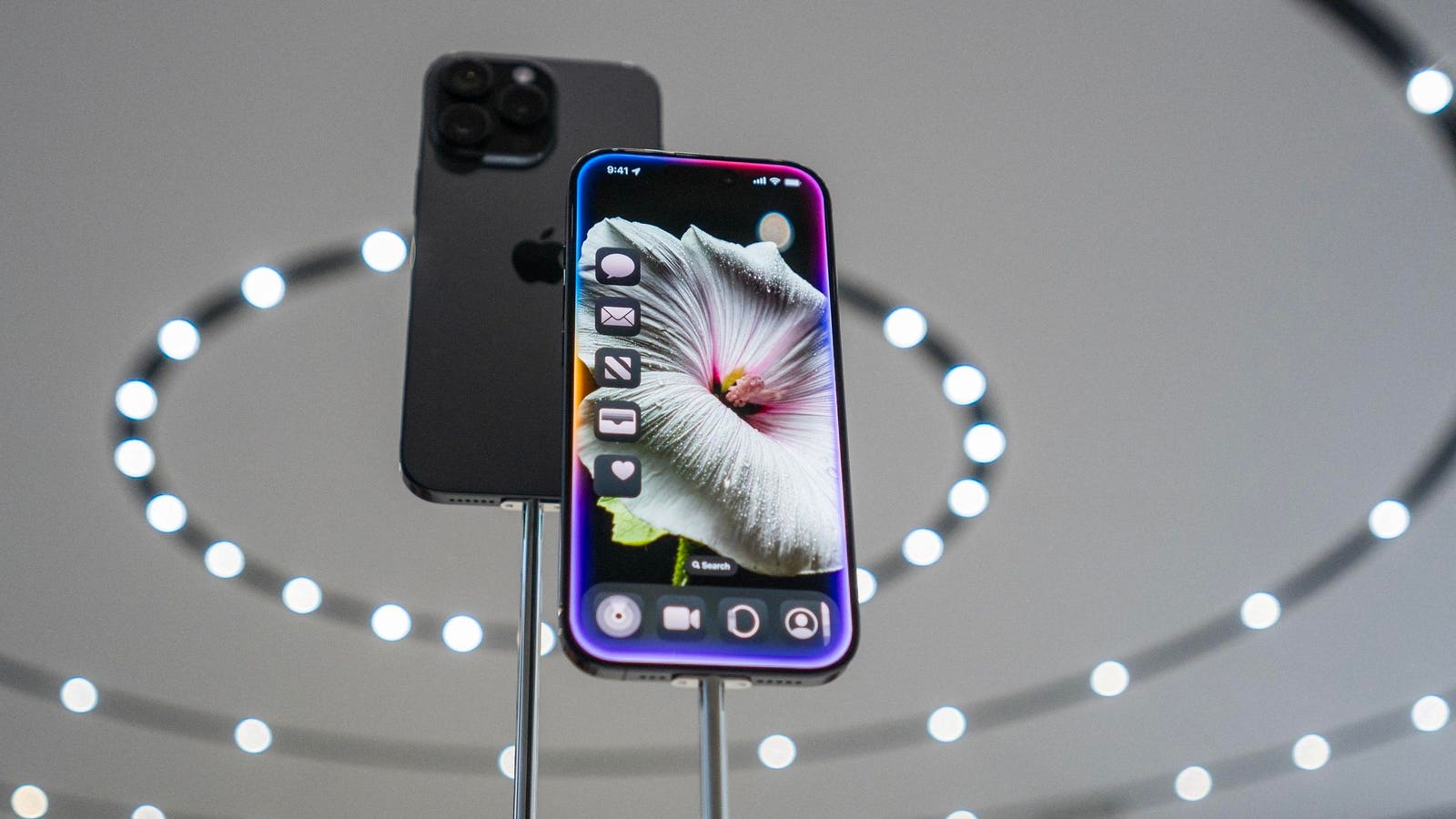Apple has released iOS 18.1 and it comes with a warning to update your iPhone as soon as possible. … [+]
Update, October 29, 2024: This story, originally published on October 28, now includes details of iOS 17.7.1 fixes, as well as other Apple patches released alongside iOS 18.1. It also explains the difference between iOS 18.1 and iOS 17.7.1 for your security.
Apple has released iOS 18.1 and it comes with a warning to update your iPhone as soon as possible. That’s because iOS 18.1 fixes a whopping 28 security flaws that affect popular Apple devices.
Apple doesn’t usually give much detail about what’s fixed in its updates, so it’s no surprise that details are scarce about iOS 18.1. However, the iPhone maker reveals that the new update fixes problems in the Kernel at the heart of the iOS operating system and in WebKit, the engine that powers the Safari browser.
The iOS 18.1 update also comes with Apple Intelligence features if you join a short waiting list of a few hours, making it an upgrade worth applying now. Here’s what you need to know about the security fixes in iOS 18.1.
Security fixes in iOS 18.1
Among the more notable patches, Apple’s iOS 18.1 fixes an issue in the Kernel, tracked as CVE-2024-44239, which could see an app able to detect sensitive kernel state, according to Apple’s support page.
The iOS 18.1 update addresses two WebKit flaws. The first, tracked as CVE-2024-44261, could allow an attacker to view restricted content from the lock screen. The second WebKit vulnerability, CVE-2024-44244, could prevent the enforcement of the Content Security Policy if a user downloads maliciously crafted web content.
The iOS 18.1 update also fixes an issue in App Support tracked as CVE-2024-44255, which could allow a malicious app to execute arbitrary shortcuts without user consent.
Meanwhile, iOS 18.1 squashes three privacy-focused bugs in Apple’s Siri, including two that could see an app able to access sensitive data.
Another flaw, CVE-2024-44255, could allow a remote attacker to break out of the web content sandbox.
Why you should update to iOS 18.1
The list of fixes in iOS 18.1 is huge, making it worth updating your iPhone as soon as possible. If you don’t want to update to iOS 18 yet, Apple has also released iOS 17.7.1, fixing many of the same bugs, but the patch list isn’t as extensive.
The iOS 18.1 update was released alongside other improvements to Apple products, all of which include a number of security patches. The list is extensive: Apple has updated macOS Sequoia 15.1, macOS Sonoma 14.7.1, macOS Ventura 13.7.1, watchOS 11.1, tvOS 18.1 and visionOS 2.1 for its Vision Pro headset.
None of the issues fixed in iOS 18.1 stand out as an emergency, says Sean Wright, head of app security at Featurespace. “Most of the vulnerabilities appear to be privacy or information leakage – albeit in some cases sensitive information,” he says.
But in most cases, the likelihood of the flaws being exploited is “extremely low” — especially given the lack of information Apple has provided about the vulnerabilities, Wright admits.
“My advice is for people to update when they can, with the added benefit of including some of the new AI features in this release,” he says.
I agree – it’s always a good idea to keep up to date with security updates, and iOS 18.1 is no exception. The update also fixes several bugs, including a random reset issue that has plagued iPhone 16 users. Go to Settings > General > Software Update and upgrade to iOS 18.1 as soon as you can.
What is the difference between iOS 17.7.1 and iOS 18.1 for security?
Apple’s iOS 18.1 comes with some cool new features and numerous security improvements, but many people don’t want to update their iPhones to the latest software version just yet. This is understandable. For those users, Apple is still updating iOS 17 with security fixes only.
This means that for now, you can apply iOS 17.7 if you have an iPhone XS and later, iPad Pro 13-inch, iPad Pro 12.9-inch 2nd generation and later, iPad Pro 10.5-inch, iPad Pro 11-inch 1st generation and later, iPad Air 3rd generation and later, iPad 6th generation and later, and iPad mini 5th generation and later.
In a few months, Apple will only release patches for older iPhones, which will be the time to bite the bullet and upgrade to iOS 18 if you have a newer device than you use it. For now, updating to iOS 18.1 is even safer because Apple releases it with a wider list of fixes.
However, you risk bugs with newer software, so in many cases—including business-critical ones—you may want to update to iOS 17.7.1.

